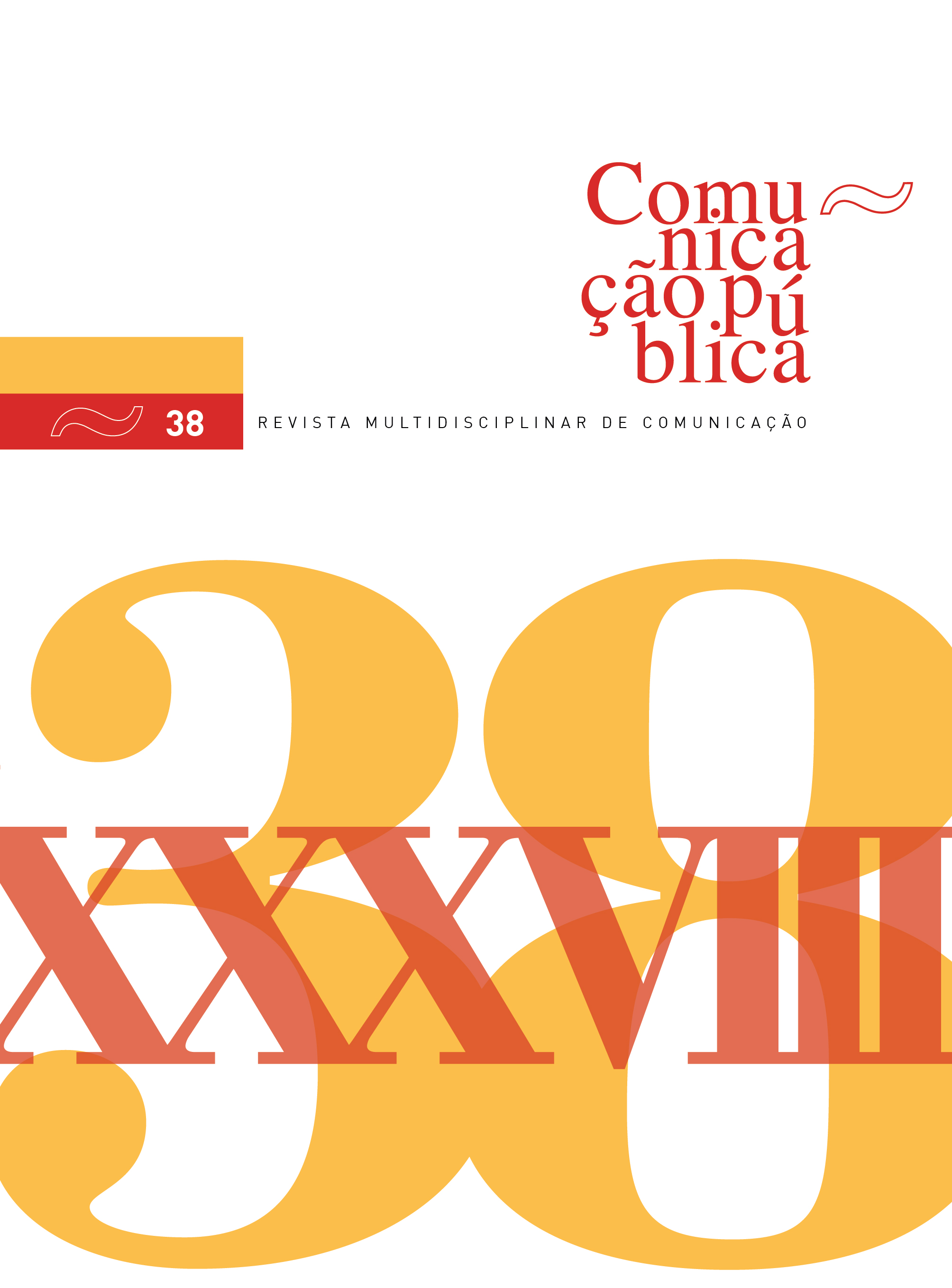Critical citizenship through communication and media literacy
a UNESCO Chair’s contribution
DOI:
https://doi.org/10.34629/cpublica.906Keywords:
UNESCO Chair, communication, media and information literacy, citizenship, democracyAbstract
In an era marked by digital hyperconnectivity and profound shifts in the way individuals interact with information and with each other, the spread of disinformation and polarization challenges the foundations of democratic societies and the full exercise of citizenship. This paper presents the UNESCO Chair of Communication, Media and Information Literacy and Citizenship, held by the School of Communication and Media Studies of the Polytechnic University of Lisbon (ESCS-IPL). Grounded in UNESCO’s values, this Chair responds to contemporary media challenges through research, education, and civic engagement. This paper situates the Chair within national and international contexts, and outlines its mission, values, objectives, and key activities. The article highlights this Chair’s ambition to contribute to media and information literacy (MIL) advancement as a vital tool for inclusive, informed, and participatory societies.
Downloads
References
Assuntos Parlamentares. (2024). Plano de ação para a Comunicação Social. https://www.portugal.gov.pt/download-ficheiros/ficheiro.aspx?v=%3D%3DBQAAAB%2BLCAAAAAAABAAzNDE2MQIAY%2FD6cAUAAAA%3D
Bonacho, F., Martins, A. F., Santos, H., Botelho, R., Marôpo, L., Bonixe, L., & Sá, S. (Coord.). (2024). Academia da leitura do mundo: o jornalismo, a comunicação e eu. LabCom e IPL. http://hdl.handle.net/10400.21/21752
Carlsson, U. (Ed.). (2019). Understanding Media and Information Literacy (MIL) in the Digital Age: A question of democracy. Department of Journalism, Media and Communication, University of Gothenburg. https://webarchive.unesco.org/web/20201009042827/https://en.unesco.org/sites/default/files/gmw2019_understanding_mil_ulla_carlsson.pdf
Centre for Media Transition. (2019). The impact of digital platforms on news and journalistic content. Australian Competition and Consumer Commission. https://www.accc.gov.au/system/files/ACCC%20commissioned%20report%20-%20The%20impact%20of%20digital%20platforms%20on%20news%20and%20journalistic%20content%2C%20Centre%20for%20Media%20Transition%20%282%29.pdf
Council of Europe. (2020). Supporting quality journalism through Media and Information Literacy. https://rm.coe.int/prems-015120-gbr-2018-supporting-quality-journalism-a4-couv-texte-bat-/16809ca1ec
European Digital Media Observatory. (2024). Guidelines for effective media literacy initiatives. https://edmo.eu/wp-content/uploads/2024/10/EDMO-Guidelines-for-Effective-Media-Literacy-Initiatives.pdf
European Commission. (n.d.). Media literacy expert group (E02541). Register of commission expert groups and other similar entities. https://ec.europa.eu/transparency/expert-groups-register/screen/expert-groups/consult?lang=en&groupID=2541
European Commission: Directorate-General for Communications Networks, Content and Technology, Open Evidence, RAND Europe, Richardson Golinski, T., Porcu, F., Theben, A., Meranto, S., Stewart, K., Taylor, J., Febrer, N., Devaux, A., Lupiáñez-Villanueva, F., Hoorens, S., Folkvord, F., Deshpande, A., & Harshfield, A. (2019). Study on media literacy and online empowerment issues raised by algorithm-driven media services: Final report. Publications Office of the European Union. https://data.europa.eu/doi/10.2759/27617
Starostin, M., Cella, C., & Monasterio, G. V. (2025). Eurobarometer: Youth Survey 2024. European Parliament. https://europa.eu/eurobarometer/surveys/detail/3392
Europol. (2024). Facing reality? Law enforcement and the challenge of deepfakes, an observatory report from the Europol Innovation Lab (updated). Publications Office of the European Union. https://doi.org/10.2813/158794
Frau-Meigs, D. (2017). Media and Information Literacy (MIL): Taking the digital social turn for online freedoms and education 3.0. In H. Tumber & S. Waisbord (Eds.), The Routledge companion to media and human rights. Routledge.
Frau-Meigs, D., O’Neill, B., Soriani, A., & Tomé, V. (2017). Digital citizenship education: Overview and new perspectives (volume 1). Council of Europe. https://rm.coe.int/168077bc6a
G20. (2024, November 18). G20 Rio de Janeiro leaders' declaration. https://g20.org/wp-content/uploads/2024/11/G20-Rio-de-Janeiro-Leaders-Declaration-EN.pdf
Governo de Portugal. (2024). Plano estratégico para a literacia mediática 2024–2029. https://milobs.pt/wp-content/uploads/2024/03/Plano-estrat%C3%A9gico.pdf
Kalogeropoulos, A., Cherubini, F., & Newman, N. (2016). The future of online news video. Reuters Institute for the Study of Journalism. https://doi.org/10.60625/risj-ftg2-zc61
Lunt, P., & Livingstone, S. (2012). Media regulation: Changing relations between Government, media industries, citizens and consumers. Sage. https://doi.org/10.4135/9781446250884
McDougall, J., Livingstone, S., Sefton-Green, J., & Fraser, P. (2014). Media and Information Literacy policies in the UK. https://eprints.lse.ac.uk/57103/1/Livingstone_media_information_literacy_2014_author.pdf
Newman, N., Fletcher, R., Robertson, C. T., Ross Arguedas, A., & Nielsen, R. K. (2024). Reuters Institute digital news report 2024. Reuters Institute for the Study of Journalism. https://doi.org/10.60625/risj-vy6n-4v57
Organisation for Economic Co-operation and Development. (2024). Do adults have the skills they need to thrive in a changing world? Survey of adult skills 2023 (OECD Skills Studies). OECD Publishing. https://doi.org/10.1787/b263dc5d-en
Organisation for Economic Co-operation and Development. (2025). How's life for children in the Digital Age?. OECD Publishing. https://doi.org/10.1787/0854b900-en
Presidência do Conselho de Ministros. (2025). “Resolução do Conselho de Ministros n.º 65/2025”. Diário da República n.º 54/2025, Série I de 2025-03-18. https://diariodarepublica.pt/dr/detalhe/resolucao-conselho-ministros/65-2025-911303074
Reporters Without Borders. (2025). World press freedom index 2025. https://rsf.org/en/country/portugal
Tully, M., Vraga, E. K., & Bode, L. (2020). Designing and testing news literacy messages for social media. Mass Communication and Society, 23(1), 22–46. https://doi.org/10.1080/15205436.2019.1604970
UNESCO. (n.d.). UNESCO Chairs and UNITWIN Networks. https://www.unesco.org/en/unitwin
UNESCO. (2024). Global education monitoring report: Gender report – Technology on her terms. https://doi.org/10.54676/WVCF2762
United Nations. (2024). Pact for the future. https://www.un.org/sites/un2.un.org/files/sotf-pact_for_the_future_adopted.pdf
World Economic Forum. (2025). The global risks report 2025 (20th ed.). https://reports.weforum.org/docs/WEF_Global_Risks_Report_2025.pdf
Zenzerović, S., & Nenadić, I. (2022). Strengthening resilience to disinformation: The state of affairs and guidelines for action (2nd ed.). Agency for Electronic Media. https://www.aem.hr/wp-content/uploads/2010/02/Study_Disinformation_eng.pdf
Downloads
Published
Issue
Section
License
Copyright (c) 2025 Direitos do Autor (c) 2025

This work is licensed under a Creative Commons Attribution-NonCommercial 4.0 International License.
Os conteúdos da Comunicação Pública estão licenciados com uma licença Creative Commons - Atribuição-NãoComercial 4.0 Internacional.


